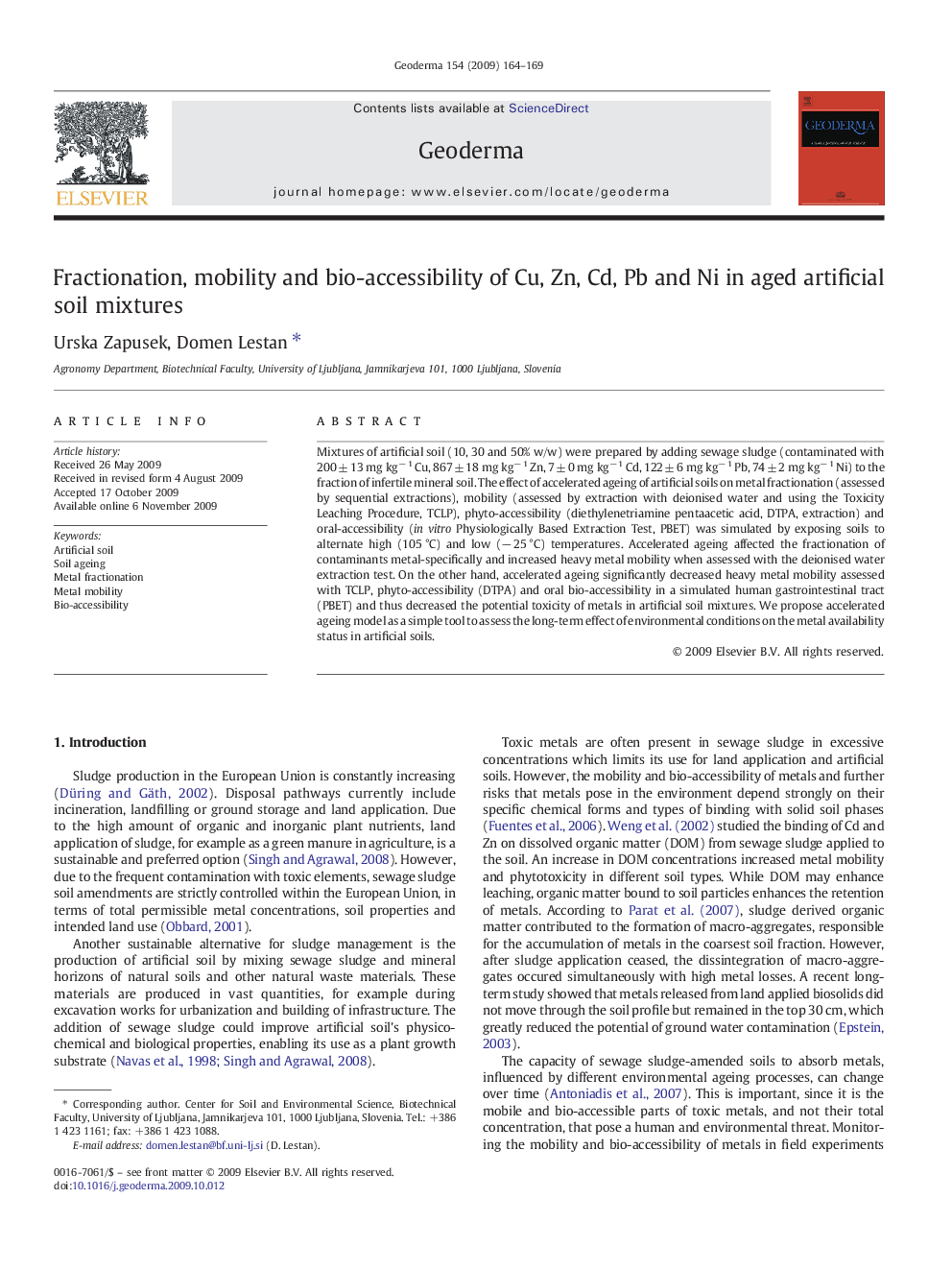| Article ID | Journal | Published Year | Pages | File Type |
|---|---|---|---|---|
| 4574436 | Geoderma | 2009 | 6 Pages |
Mixtures of artificial soil (10, 30 and 50% w/w) were prepared by adding sewage sludge (contaminated with 200 ± 13 mg kg− 1 Cu, 867 ± 18 mg kg− 1 Zn, 7 ± 0 mg kg− 1 Cd, 122 ± 6 mg kg− 1 Pb, 74 ± 2 mg kg− 1 Ni) to the fraction of infertile mineral soil. The effect of accelerated ageing of artificial soils on metal fractionation (assessed by sequential extractions), mobility (assessed by extraction with deionised water and using the Toxicity Leaching Procedure, TCLP), phyto-accessibility (diethylenetriamine pentaacetic acid, DTPA, extraction) and oral-accessibility (in vitro Physiologically Based Extraction Test, PBET) was simulated by exposing soils to alternate high (105 °C) and low (− 25 °C) temperatures. Accelerated ageing affected the fractionation of contaminants metal-specifically and increased heavy metal mobility when assessed with the deionised water extraction test. On the other hand, accelerated ageing significantly decreased heavy metal mobility assessed with TCLP, phyto-accessibility (DTPA) and oral bio-accessibility in a simulated human gastrointestinal tract (PBET) and thus decreased the potential toxicity of metals in artificial soil mixtures. We propose accelerated ageing model as a simple tool to assess the long-term effect of environmental conditions on the metal availability status in artificial soils.
